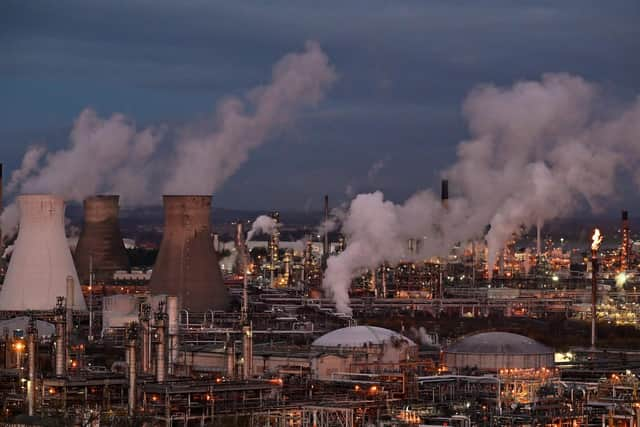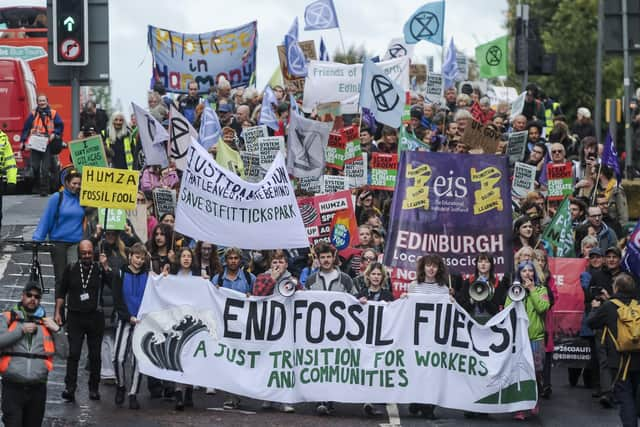Climate change: World breaches 1.5C warming limit for full year for the first time - but what does the global warning mean?
The world has for the first time experienced a full year of warming above the 1.5C target limit set out in the Paris climate change agreement.
Data collated by the EU-funded Copernicus Climate Change Service (C3S) shows the global mean temperature for the period from February 2023 to the end of last month is the highest on record, at 1.52C above the 1850-1900 pre-industrial average and 0.64C above the 1991-2020 average.
Advertisement
Hide AdAdvertisement
Hide AdThe figures come after a raft of global weather records were broken in the past 12 months, including last month becoming the hottest known January – the latest in an eight-month run of hottest-ever months – and 2023 lifting the title as the planet’s warmest year in human history. Sea temperatures were also especially high.
At the United Nations COP21 climate summit in 2015, nearly 200 countries signed the landmark Paris Agreement, pledging to slash greenhouse gas emissions in a bid to limit global warming to 1.5C and stave off the worst impacts of climate breakdown.
This first year-long overshoot of 1.5C does not break the Paris terms, but it does bring the likelihood closer. Projections by Copernicus suggest this could happen in under a decade – by 2033.
Gabi Hegerl, professor of climate system science and the University of Edinburgh’s School of Geosciences and associate of the Edinburgh Climate Change Institute, said the El Nino weather phenomenon was partly to blame for the most recent high temperatures and it would be expected the global temperature should sink back below 1.5C when its effects are not in play.


But she warned any fallback may be short-lived.
“The main reason why the year is so warm is that greenhouse gases have caused significant warming,” she said. “On top of that is climate variability, such as the warmer global surface temperatures that usually occur during years when the El Nino phenomenon occurs – that’s a period when the cold upwelling off the coast of South America in the Pacific is temporarily interrupted.
“This tends to make global surface temperatures warmer. As the phenomenon subsides, most people expect that we will sink below the 1.5C again, but given we are still on a warming trend this may not last.”


But experts say there is still time to halt further heating, but only with dramatic and urgent action.
Samantha Burgess, deputy director of the Copernicus Climate Change Service (C3S), said: “Rapid reductions in greenhouse gas emissions are the only way to stop global temperatures increasing.”
Advertisement
Hide AdAdvertisement
Hide AdInternational climate scientists have long agreed the planet’s warming trend is caused by human activities, namely burning of fossil fuels – coal, oil and gas – creating atmospheric carbon emissions that push up temperatures and cause climate change.
They have concluded that warming of 2C above pre-industrial levels will trigger catastrophic and irreversible climate change. Impacts include the melting of ice sheets, glaciers and permafrost, rising sea levels, even more extreme weather conditions such as torrential rainfall, droughts and wildfires, and loss of wildlife.
Many nations, including the UK, have set out targets to reach neutral emissions by 2050. Scotland aims to hit the goal five years earlier, by 2045.
Comments
Want to join the conversation? Please or to comment on this article.